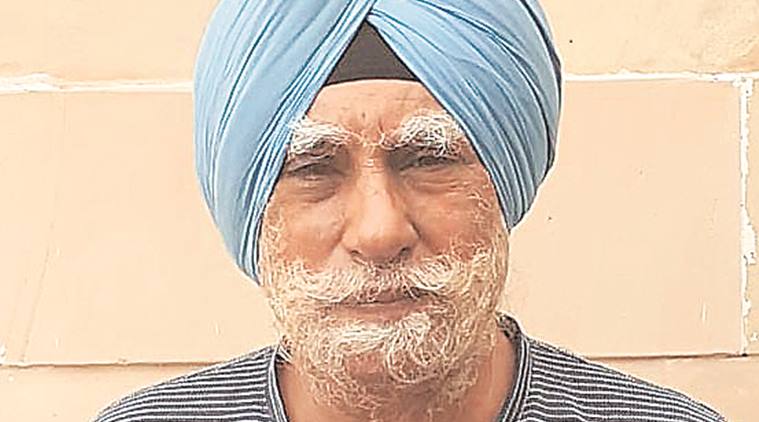 Major R S Gujral
Major R S Gujral
GETTING YOUR paying guest accommodation registered is not a cakewalk. Meet the man who was the first one in the city to get his paying guest accommodation registered —- and it took the 73-year-old four long years to get the registration certificate only after he filed a Right to Information (RTI) application asking for the status of his application. Major R S Gujral (retd) claimed that such a long time was taken because the then enforcement official was “seeking a reward for efforts he will put in for his PG registration”.
Stating about his harrowing experience, the owner said that he was also fined Rs 58,000 in that process for running commercial activity even when he had already filed his application.
Major Gujral is among 25 who are the only ones who have got their paying guest accommodations registered in the city. He owns a 2.5 kanal house in Sector 35.
It was in 2006 that Gujral moved an application to register his PG. “After two years in 2008, the officials told me that they require an affidavit. It is surprising that they told this to me after two years. In fact, the reason was that the then enforcement official was seeking rewards for his efforts and I told him I won’t tolerate this nonsense. So they were not paying a visit to my residence,” he said.
After shuttling from one department to another, finally in 2009 after three years of filing the application with complete documents, the team paid a visit to Gujral’s house. And they again sat over it.
“Despite delay on their part, they fined me Rs 58,000 for running commercial activity. I got fed up with their way of dealing with my application. In 2010, I filed an RTI seeking the status of my application. After moving to appellate authority, it was then they moved my case and I got the registration certificate of my PG. This is one of the reasons why people worry when they got to register their PGs,” he added.
Gujral has a capacity of 40 girls in his house and at present has 15 of them. He is paying commercial charges for water, power and commercial property tax as well.
The registered PG owner has pointed out several loopholes in the existing system. “Why will people register their PGs when the fine to run an illegal PG is just Rs 200 as in the case where three students died,” he said. “We registered PG owners are paying commercial charges but when the fine of not registering a PG is negligible why will they register it?”
Gujral who is also the president of PG Association in Chandigarh stated how the movement of having a paying guest accommodation policy started in Chandigarh because of various outstation students coming to the city from nearby states to study or pursue courses.
“There is another side to it if you see. The basic idea to have a PG policy was to ensure reasonable stay in houses, that too with proper safety. There are many outstation students who come to Chandigarh to study from nearby states. Some even come only to take coaching. So where do they stay? Those who come for coaching for a six-month course do not have a provision for staying in hostels and even those educational institutes that have hostels don’t have adequate number of seats so students prefer to take a PG with their fellow colleagues,” he added.
Letter to Administrator
Gujral has written to the Administrator after the incident. He said that no PG should be permitted where the owner is not residing within the premises and the area specified per PG should be strictly adhered to.
“I feel normal rates should be charged for water, electricity and property tax as the occupancy is not the same throughout the year and some relaxation should be given in building violations so that more owners could get registered. Also, no PG should be allowed to run without a proper registration. A report be given to the police or to the Chandigarh Administration every month about the occupants of the PG. Since the occupants’ stay is variable, the report should have the details of all the people who stayed in the preceding month,” he said in the letter.
Misuse in the form of rent agreements
In order to avoid paying commercial charges of water, power and commercial property tax, the owners get rent agreements made with the students. A resident, Aditya Vikram, has written to the Administrator requesting for a public hearing in the matter.
“Over the last few years, the population of outstation students has increased manifold and there is a real dearth of hostel accommodation. Unscrupulous house-owners in order to avoid the hefty PG commercial charges, sign tenant agreements with up to 25-30 students for a single house. The local police station has no record of such massive tenant agreement fraud/ non-registered PGs,” he said.
Costs around Rs 80K for water and power if you get PG registered
As one has to pay commercial charges, for Gujral, he said he pays Rs 20,000 for two months for water charges at the rate of Rs 15 per KL and Rs 5.60 per unit for power charge which costs him Rs 60,000 as per his consumption. Gujral said that even the property tax he has to pay Rs 18,000 which would have cost Rs 7,000 if he did not get it registered.